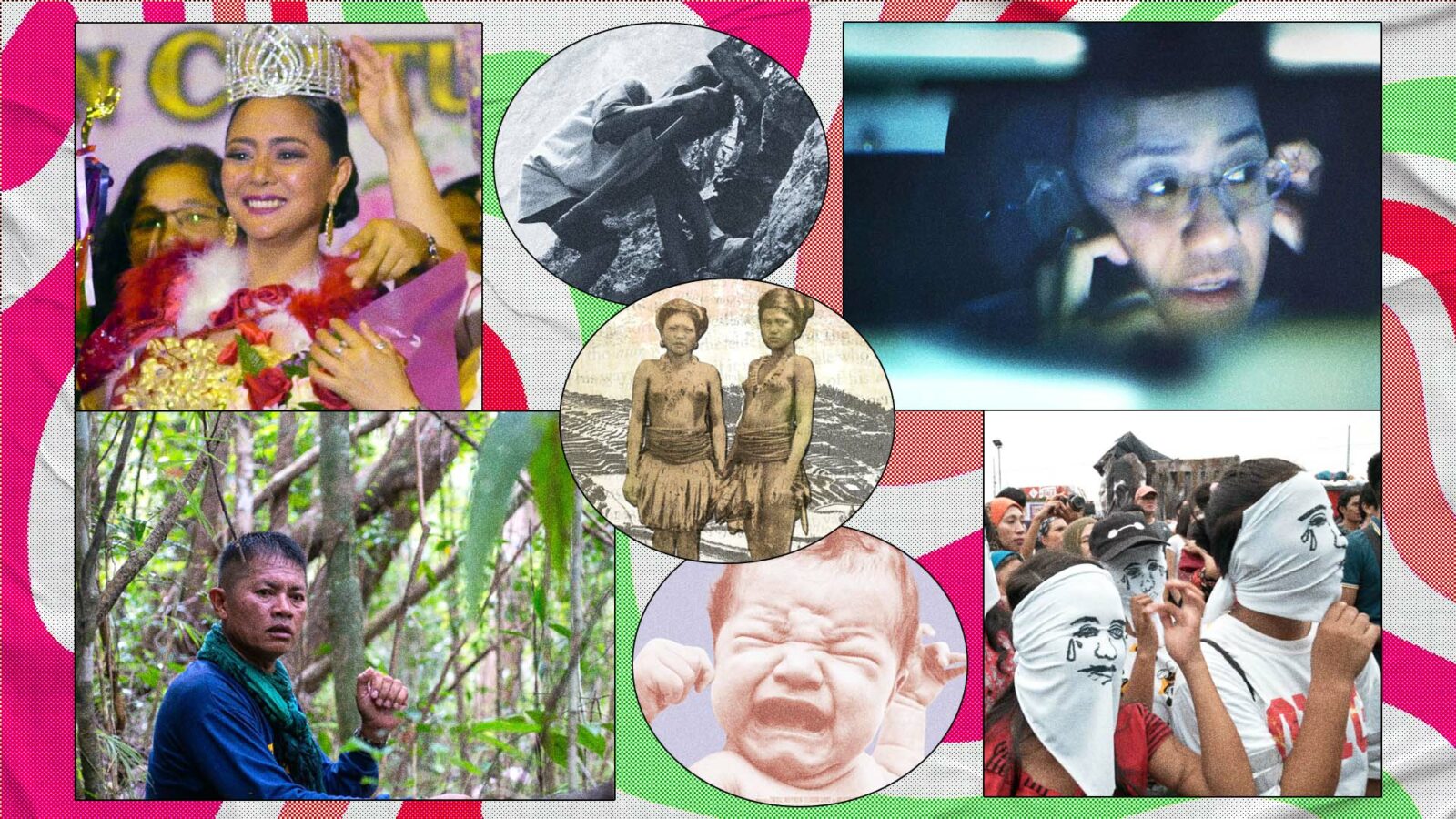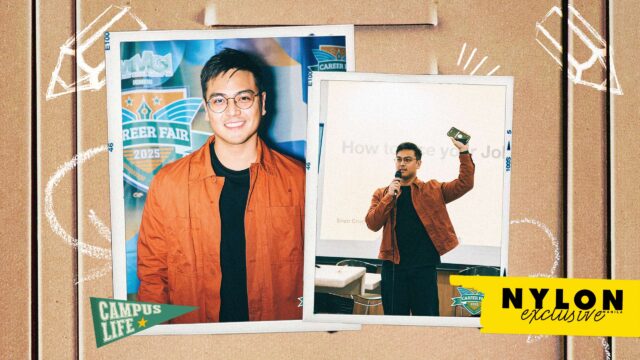As part of the United Nation’s year-long campaign for upholding human rights, here are Filipino documentaries that will remind you of your freedom and inspire you into action.
Every December 10, the international community observes Human Rights Day as a way of commemorating the United Nations’ milestone adoption of the Universal Declaration of Human Rights. Since 1948, after the devastation of the Second World War, veritably all member states vowed to never again allow destructive atrocities like it with the the upholding of the UDHR, which proclaims the inalienable rights that everyone is entitled to “regardless of race, colour, religion, sex, language, political or other opinion, national or social origin, property, birth or other status.”
For 2022, the UN encourages people to stand up for “Dignity, Freedom and Justice For All.” Because while the landmark document has become the foundation of the evolving system of human rights protection today, especially for vulnerable groups such as persons with disabilities, indigenous peoples, and migrants, the promise of the UDHR has also been under sustained attack recently. This is why from December 10, 2022 up until the 75th anniversary of the UDHR adoption next year, the UN will hold a year-long campaign that will educate, promote attitude change, and empower people to fight better for their rights with knowledge and tools.
And as a way of joining this campaign, of reminding ourselves of the importance of our unassailable rights, of making ourselves more aware of the plight of our fellow Filipinos here and abroad, and of knowing the ways we can help them and ourselves protect our civil liberties, here are some Filipino documentaries that shed light on these urgent matters that will motivate us to stand up for human rights.
Related: Maria Ressa Tells Us How To Protect Democracy In Her Late Show Interview
Sunday Beauty Queen
Currently, there are an estimated 1.83 million Overseas Filipino Workers (OFW) worldwide. While they are hailed as modern-day heroes who prop up the country’s economic performance and whose remittances help prevent a recession and economic crisis, OFWs remain to be the most vulnerable to abuse, injustice, discrimination while being away with their families.
Baby Ruth Villarama’s Sunday Beauty Queen probes the hidden lives of Filipina domestic workers in Hong Kong (third leading destination for OFWs) who have to endure dismal wages, unfair policies, and abusive employers. Through a beauty pageant unlike no other, the Filipina dreamers find a little space to finally reclaim their self-worth, dignity, and redemption, even just for a day.
Motherland
The World Health Organization (WHO) Constitution puts the obligation on the states to cater to the people’s fundamental right to the highest attainable standard of health. Central to and dependent upon other rights (e.g., food, housing, education), the right to health includes access to acceptable, timely, and affordable healthcare, and must be enjoyed without discrimination.
Ramona Diaz’s Sundance-winning Motherland takes you into an immersive, vérité observation of Manila’s Dr. Jose Fabella Memorial Hospital, which is dubbed to be the “the busiest maternity ward in the planet” and with an average of 60 babies born daily, considered to be the country’s “baby factory.” Amid the tight, crowded spaces, unending cries of new life, and vibrant conversations between mothers, nurses, and social workers, one can’t help but think of the glaring need for a better medical service and support that the citizens rightfully deserve.
A Thousand Cuts
Chronicling the escalating crackdown of former president Rodrigo Duterte on Nobel laureate Maria Ressa, Rappler, and the news media for the investigation of his drug war, Ramona Diaz’s A Thousand Cuts foregrounds what Ressa calls “death by a thousand cuts” when democracy is threatened by the powers that be through assaulting the press and freedom of expression.
WALANG RAPE SA BONTOK
In a society ridden with gender-based violence, especially towards women, can you imagine a place where rape is unheard of? Propelled by this inquiry that is also rooted in the experiences of two female filmmakers who are rape survivors, grassroots documentarians Mark Lester Valle and Carla Pulido Ocampo find an antithesis to the country’s unabated and rampant rape culture in the rapeless society of Philippine Cordillera’s Bontok Igorot.
Using a cultural lens, Valle and Ocampo have two intentions with Walang Rape Sa Bontok: To seek understanding of the ubiquity of sexual violence in the Philippine society; and to provide an ethical representation of and shatter generations-old myths about the Bontok Igorot, who are the first people documented to have lived a rapeless culture that attributes high regard and respect for women.
Yield
According to Human Rights Watch, over 70 million children around the world are exposed to “hazardous conditions in agriculture, domestic labor, and other sectors” including tobacco farms and artisanal and small-scale gold mines. This plight of child laborers is what Toshihiko Uriu and Victor Delotavo Tagaro examine in Yield. An ethnographic study that spans five years, Yield documents the lives of nine Filipino children working in dire settings, giving a profound and sobering insight into the definition of labor the filmmakers describe as something “part of the creation and the eventual decline of life.”
Aswang
The human cost of the drug war is profoundly explored in Alyx Ayn Arumpac’s award-winning debut documentary, Aswang. Taking inspiration from the the Filipino vampiric mythical creature that preys on humans, Aswang gives an unflinching look at how this monster takes shape in the streets and feeds on present-day fears at the height of a brutal human rights crisis that includes lawlessness, extrajudicial killings, kidnappings, disappearances, and mass incarcerations. Following the heroism of a journalist standing up for truth, a coroner, a missionary, and a street kid whose parents have been imprisoned, Aswang delves into the crippling terror of impunity and unchecked power.
Delikado
Global Witness reports that the Philippines has consistently been the deadliest place in Asia for land and environmental defenders. From 2012 to 2021, a total of 270 defenders have been murdered, forty-percent of which were indigenous peoples campaigning for the protection of their land and the environment. Karl Malakunas’s documentary Delikado zeroes in on this deadly mission as carried out by a tiny network of environmental crusaders defending the tropical and idyllic island of Palawan. Delikado follows the three courageous leaders of the defenders confronting murder, betrayal, and political corruption as they try to save and preserve the Philippines’ last frontier.
Continue Reading: Filipino Indigenous Languages Take Center Stage At These Events





